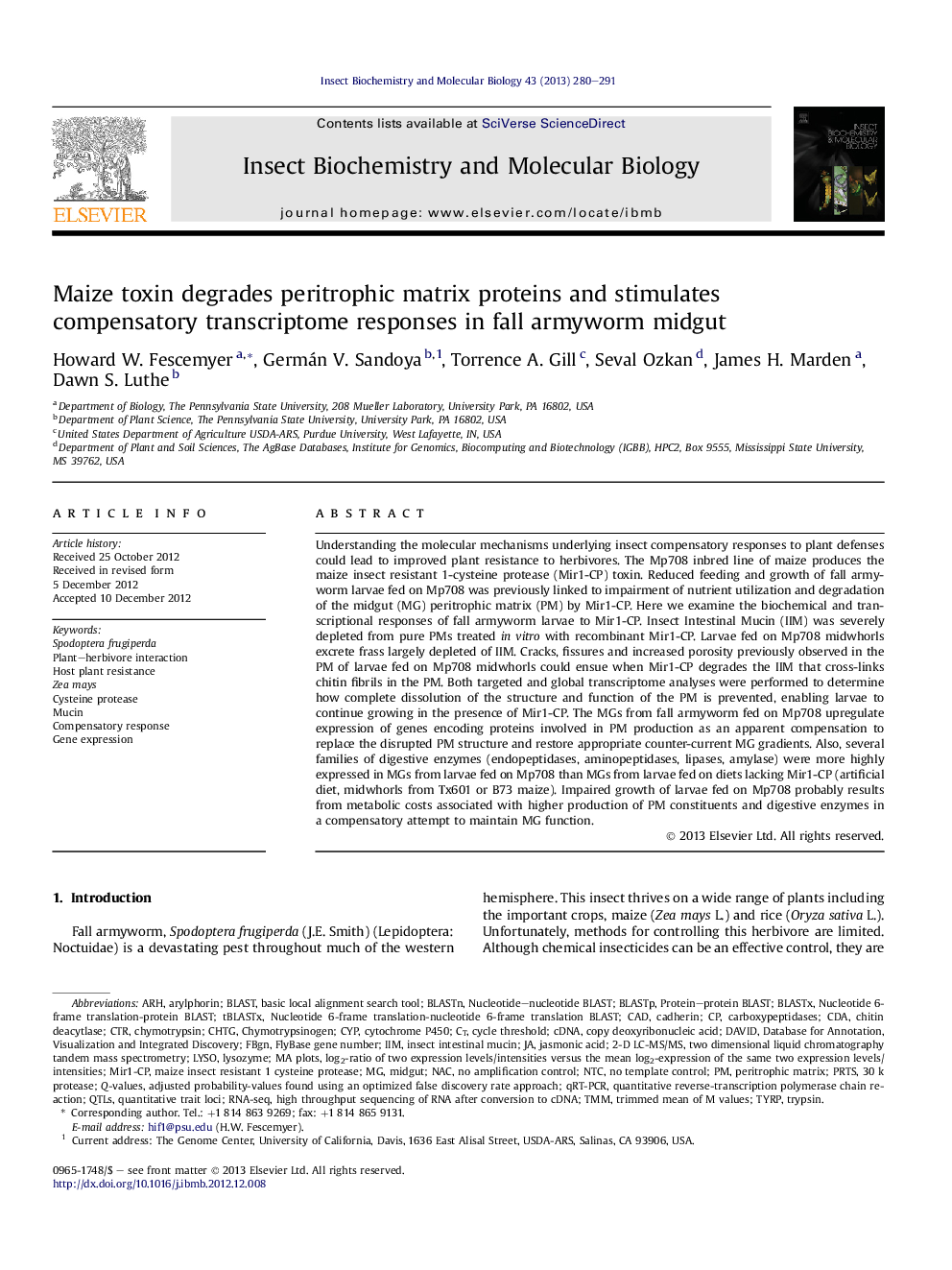| Article ID | Journal | Published Year | Pages | File Type |
|---|---|---|---|---|
| 1982198 | Insect Biochemistry and Molecular Biology | 2013 | 12 Pages |
Understanding the molecular mechanisms underlying insect compensatory responses to plant defenses could lead to improved plant resistance to herbivores. The Mp708 inbred line of maize produces the maize insect resistant 1-cysteine protease (Mir1-CP) toxin. Reduced feeding and growth of fall armyworm larvae fed on Mp708 was previously linked to impairment of nutrient utilization and degradation of the midgut (MG) peritrophic matrix (PM) by Mir1-CP. Here we examine the biochemical and transcriptional responses of fall armyworm larvae to Mir1-CP. Insect Intestinal Mucin (IIM) was severely depleted from pure PMs treated in vitro with recombinant Mir1-CP. Larvae fed on Mp708 midwhorls excrete frass largely depleted of IIM. Cracks, fissures and increased porosity previously observed in the PM of larvae fed on Mp708 midwhorls could ensue when Mir1-CP degrades the IIM that cross-links chitin fibrils in the PM. Both targeted and global transcriptome analyses were performed to determine how complete dissolution of the structure and function of the PM is prevented, enabling larvae to continue growing in the presence of Mir1-CP. The MGs from fall armyworm fed on Mp708 upregulate expression of genes encoding proteins involved in PM production as an apparent compensation to replace the disrupted PM structure and restore appropriate counter-current MG gradients. Also, several families of digestive enzymes (endopeptidases, aminopeptidases, lipases, amylase) were more highly expressed in MGs from larvae fed on Mp708 than MGs from larvae fed on diets lacking Mir1-CP (artificial diet, midwhorls from Tx601 or B73 maize). Impaired growth of larvae fed on Mp708 probably results from metabolic costs associated with higher production of PM constituents and digestive enzymes in a compensatory attempt to maintain MG function.
Graphical abstractFigure optionsDownload full-size imageDownload high-quality image (226 K)Download as PowerPoint slideHighlights► Maize insect resistant 1-cysteine protease (Mir1-CP) is expressed in resistant Mp708 maize. ► Insect Intestinal Mucin in the peritrophic matrix (PM) is a key target of Mir1-CP. ► Genes encoding PM structural proteins are upregulated in midguts (MGs) from caterpillars fed on Mp708. ► Likewise for genes encoding digestive enzymes compared with MGs from caterpillars fed on diets lacking Mir1-CP. ► Transcriptional regulation of MG genes is a means by which insects counter the Mir1-CP resistance trait of Mp708 maize.
